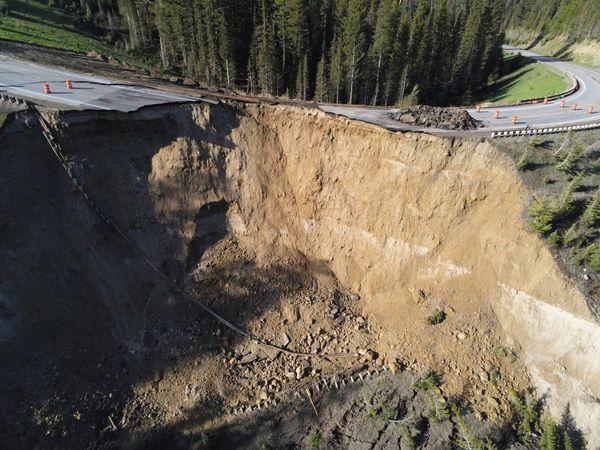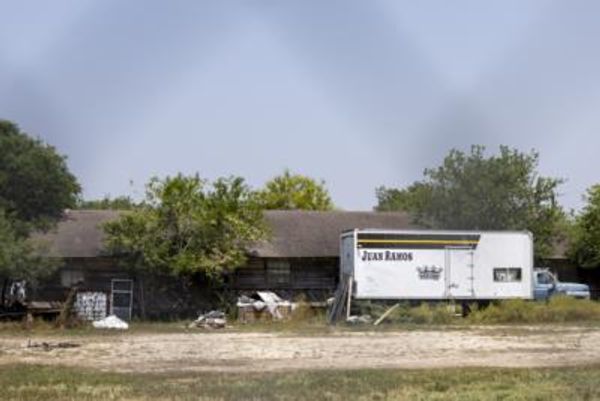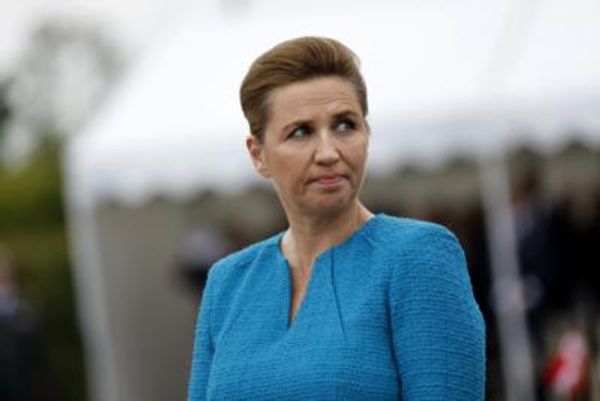As Russia’s war against Ukraine approaches its third winter, there is still no end in sight. The drip feed of Western military aid is enough for Ukraine to keep fighting but insufficient to liberate all its territory. At the same time, despite continued popular support for Kyiv’s cause in Western countries, there is plenty of talk about Western war fatigue, with increasing behind-the-scenes debate about a possible compromise to end or freeze the war.
A compromise would be premature for a number of familiar reasons. First, neither side is ready for serious negotiations. Regaining control over Ukraine may not be existential for Russia’s survival, as Russian President Vladimir Putin has claimed, but it could very well become a matter of life and death for Putin himself. For Ukraine, the fight is existential, and Western leaders have said again and again that it is for Ukraine to decide when to negotiate and on what conditions. That mantra is flawed, however, since we already know that Ukraine wants to keep fighting. By holding back on crucial weapons deliveries, Western countries are partly responsible for Ukraine not advancing as fast as it and its supporters would wish.
Second, violence in Russian-occupied territories will not stop as long as these territories remain under Moscow’s control. Freezing the conflict is therefore a non-starter for the Ukrainians who have seen the horrors perpetrated by Russians in Bucha, Irpin, and countless other towns and villages. This is well understood by Ukraine’s neighbors, which have their own experience of Russian and Soviet occupation. It means living under fear, unfreedom, and the constant threat of violence.
These arguments against seeking a settlement any time soon will be familiar to readers following the war. Less discussed—but much more fundamental for all of Europe—is what a settlement would mean for the future European security order. If the war were frozen, not only would Russia be rewarded for its attack. It would also hold on to its goal of fundamentally revising the European security order and reestablishing its sphere of influence.
It should be very clear that Moscow’s understanding of the principles and norms of European security is incompatible with Western views. As we can see in Ukraine, the Kremlin equates security with control, which has deep roots in Russian history and foreign policy. This is unlikely to change in the foreseeable future.
The tradition of Russia as a land-hungry empire goes back in a straight line to medieval Muscovy, which transformed into an expansionist state under the rule of Ivan the Terrible in the 16th century. Ivan, also known for his cruelty in torturing and massacring his own people, has been rehabilitated and celebrated under Putin’s rule, while Putin himself has adopted another torture-loving Russian empire builder, Peter the Great, as his role model.
Another key Russian foreign-policy tradition is the idea that the European security order should be based on agreements among the major powers over the heads of smaller ones. Since 2014, the Kremlin has repeatedly made references to the Congress of Vienna, which redrew the map of Europe in the early 1800s, and the Yalta Conference, the British-Soviet-U.S. meeting in February 1945 that divided Europe into two spheres of influence. From the Russian perspective, both agreements laid the foundation for decades-long stability. The price of that stability, however, is painfully known to the countries affected by Russian domination. The Vienna agreement wiped Poland off the map as a sovereign state for a century, and Yalta doomed half of Europe to more than 40 years of Soviet occupation and totalitarian rule.
Europe’s post-Cold War order has brought unprecedented levels of freedom, sovereignty, and prosperity to Russia’s western neighbors. Most of the former Eastern Bloc countries used their sovereignty to make a decisive turn to the West. Among the former Soviet republics, the Baltic states’ Western turn was fast and determined; Ukraine, Georgia, and Moldova tried to follow later and are still struggling for the right to choose their future place in Europe, including membership in the European Union. The EU’s decision-making structures underpin a fundamentally different order compared with being part of a Russian-controlled zone: The bloc gives substantial power to smaller states, even as members delegate some aspects of sovereignty to supranational institutions. Staying in the gray zone between Russia and the EU, as Ukraine has done, proved to be the least stable option.
Russia never felt comfortable with post-Cold War developments in European security. It frequently complained about not being treated as an equal by the West—yet Russia’s and Europe’s definitions of equality are very different. For Russia, it means being on par with other great powers, notably the United States, and not with its sovereign neighbors, whose agency it has consistently denied. Because it does not see them as equals, Moscow also has little interest in what Berlin or Paris has to say, let alone Brussels. That clouds every aspect of how Russia views its neighbors. When hundreds of thousands of Ukrainians took to the streets during the 2004 Orange Revolution to protest against their corrupt and dishonest government—and again during the Maidan Revolution in late 2013 and early 2014—all Moscow could see was a supposed U.S. plot to weaken Russia.
In 2009, then-Russian President Dmitry Medvedev proposed a new European security treaty in an attempt to defend what Russia considered its legitimate security interests, now allegedly being trod on by the West. Using code language such as “indivisibility of security,” what Moscow really seemed to seek was to confine NATO to the Cold War-era West and gain veto right over the alliance’s decisions if Russia considered them contrary to its very different definition of security.
In December 2021, as Russian forces were massing to invade Ukraine, the Kremlin made a renewed attempt to promote its vision of a European security order in two documents addressed to NATO and the United States. This time the ambiguity was gone and the revisionist aims clear: a full restoration of Moscow’s Cold War-era sphere of influence and the pushback of NATO’s presence in Europe to the line before its eastward expansion in the 1990s. These aims remain unchanged and reflect Russia’s long-term strategic thinking. Western efforts since the Cold War to build a common European order with Russia have clearly failed.
If Russia achieves its strategic goal of reestablishing control over Ukraine, even in part, it will ratify Russia’s efforts to impose its vision of order on its European neighbors. But even if Russia is defeated and has to leave all occupied territories in Ukraine, it will not easily give up its centuries-old understanding of itself as an empire and major power entitled to privileged rights in its sphere of influence. Unlike some empires that were wound down in the past—such as Nazi Germany and imperial Japan—Russia will not be totally defeated. It will not be occupied by foreign powers or be forced to go through a profound system change. Russia’s imminent transformation to a status quo power that accepts its post-Cold War place in Europe, let alone further enlargement of the EU and NATO, is therefore unlikely.
Former U.S. National Security Advisor Zbigniew Brzezinski famously argued in the 1990s that Russia cannot be an empire without Ukraine. Russian propagandists claim that Russia can only exist as an empire or not exist at all. Rejecting this claim will be an essential precondition for a post-imperial Russia to emerge.
Another precondition will be for Russia to acknowledge its neighbors as sovereign states and not mere puppets doing Washington’s bidding. Where the Kremlin—echoed by so-called realists in the West—is profoundly wrong with regard to its Ukraine war is the idea that world history is written by the major powers. If that were true, the Baltic states, Finland, Poland, and Ukraine would have no reason to exist today as sovereign states. One of the big unintended consequences of Russia’s invasion of Ukraine is that it has demonstrated and strengthened the agency of Russia’s neighbors. A new power bloc in NATO now stretches from Scandinavia to the Black Sea. Poland and Ukraine are becoming leading military powers in Europe. Their contribution to European defense will be much needed in coming years and decades.
We should not expect a common understanding between the West and Russia on European security to emerge anytime soon—and certainly not as part of a negotiated agreement that would at least partially reward Russia for its dismemberment of Ukraine. It is therefore necessary to envisage a future European security order not with Russia but against it, aimed at deterring further Russian threats and defending European democracies against the Kremlin’s authoritarian, revisionist, and imperialist ambitions.
This would be a dual order similar in some ways to the Cold War era. Then, Western democracies created their own liberal rules-based structures, notably NATO and the EU, while pursuing a containment policy against the Soviet Union and engaging in ideological, economic, military, and technological competition with the Eastern Bloc. Such a new European order would, however, be inherently unstable, not least because the global context has profoundly changed since the Cold War. The United States’ commitment to European security is undermined by both domestic political turbulence and a geostrategic environment where the main U.S. competitor is now China, not Russia. At the same time, the world is no longer bipolar but has multiple competing and interconnected centers of power.
In spite of these changes, the future European order will most likely be characterized by a long-term Russian threat and an antagonistic relationship with Moscow, much as during the Cold War. Russia will continue to reject a new balance of power that shrinks its former Soviet and tsarist sphere of influence, while the West will continue to reject the very principle of spheres of influence. Russia would seek to revise the balance of power as soon as it rebuilds its military capability. In order to make the new order in Europe more sustainable, the West will need to pursue a proactive containment policy, including credible deterrence and defense, full integration of Ukraine and other countries in NATO and the EU, and restrictions on Russia’s ability to restore its military strength.
No matter where one stands on negotiations between Russia and Ukraine, the fundamental question of Europe’s future security order cannot be ignored.







